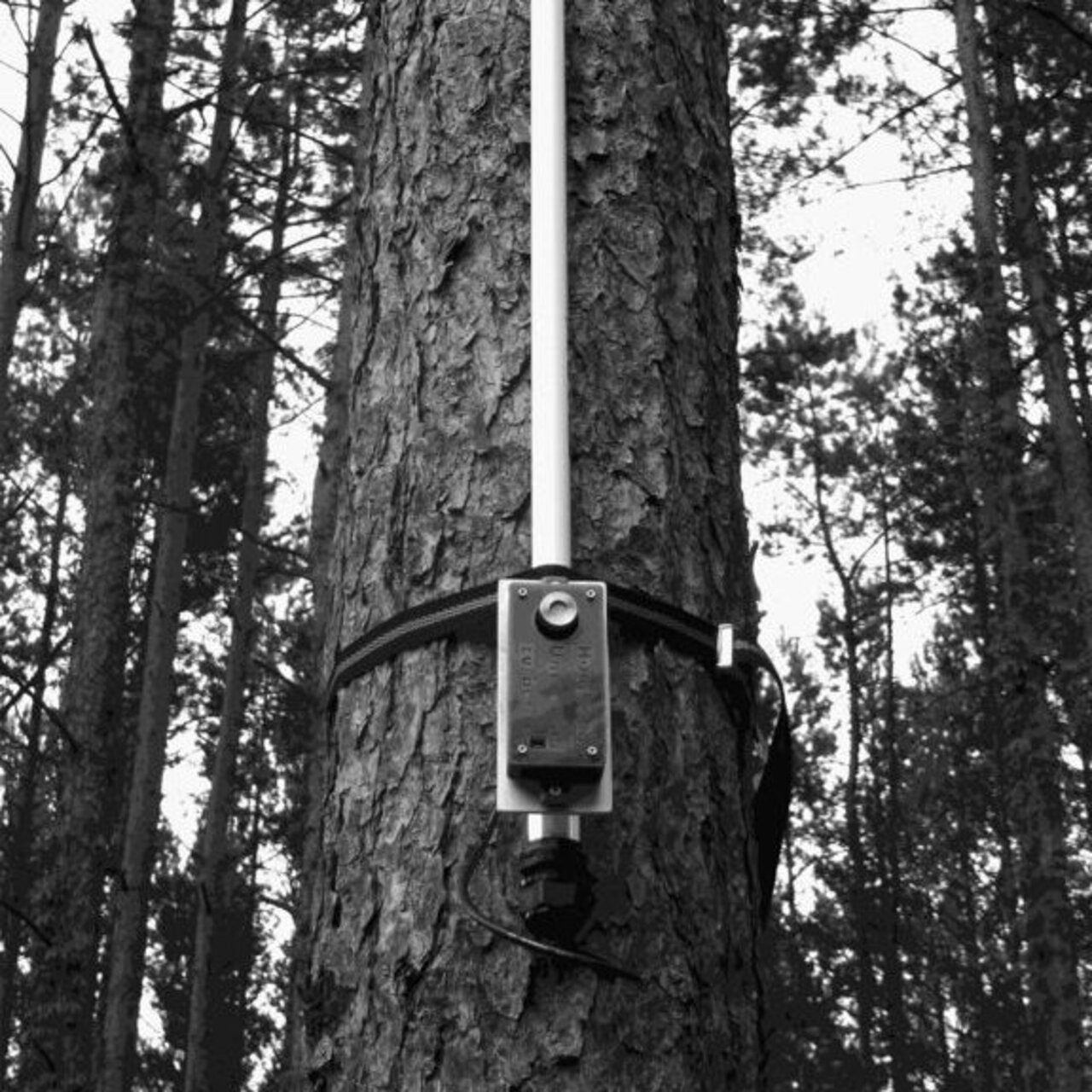Early Forest Fire Warning System INPRIWA
Project
Forest Fire Early Warning System INPRIWA

Innovative Forest Fire Early Warning System (INPRIWA)
During typical spring droughts forests in Brandenburg are susceptible to forest fire. Due to forest fire valuable timber is lost, and people and animals are threatened. During the drought year 2003, forest fires led to damages of more than 1 million Euros. The existing 'Fire Watch' warning system can only identify fires with intensive smoke emission. Thus, the fire monitoring can be considerably impeded by landscape relief and other factors.
Background and Objective
The study was aimed at developing a novel hydrogen sensor for monitoring forest fires that are able to detect fires before open flames are visible.
Approach
The functioning priciples of the sensor:
- The pyrolysis (thermal transformation) of organic material releases hydrogen (H2).
- Hydrogen molecules are small enough to penetrate the lattice structure of the detector and cause of change in capacitance.
- Hydrofen is a selective pyrolytic product, and suitable as an early indicator of forest fires.
Results
The functionality of the principle was demonstrated.
- Detection was achieved for distances up to 105 m from the sensor (approx. 70 mV).
- Depending on the distance and the amount of gas released, a signal could be detected after 1-12 minutes.
- In view of changing climate conditions, the warning system is an important early warning and monitoring module for the protection of forests.
Involved external Thünen-Partners
-
Humboldt-Universität zu Berlin
(Berlin, Deutschland)
Funding Body
-
Federal Ministry for Economic Affairs and Energy (BMWi)
(national, öffentlich)
Duration
10.2009 - 7.2011
More Information
Project funding number: KF 2184401WD9
Funding program: Innovationsförderung
Project status:
finished
Publications
- 0
Müller J, Moritz W, Nörthemann K, Bienge J-E (2015) Early forest fire detection using low energy hydrogen sensors. In: Matweew SM (ed) Lesnye ekosistemy v uslovijach menjajušcegosja klimata: Problemy i perspektivy : materialy meždunarodnoj naucno-techniceskoj jubilejnoj konferencii, posvjašcennoj 100-letiju kafedry lesovodstva, lesnoj taksacii i lesoustrojstva 21-22 maja 2015 goda. Voronež: FGBOU VO (VGLTU), pp 93-95
- 1
Nörthemann K, Bienge J-E, Müller J, Moritz W (2013) Early forest fire detection using low-energy hydrogen sensors. J Sens Sens Syst 2:171-177, DOI:10.5194/jsss-2-171-2013
Contact
Dr. Tanja Sanders

Institute of Forest Ecosystems
Alfred-Möller-Straße 1, Haus 41/4216225 Eberswalde
- Telephone
- +49 3334 3820 339
- Fax
- +49 3334 3820 354
- tanja.sanders@thuenen.de
Head of Ecology and Forest Dynamics, Contact person Intensive Forest Monitoring

